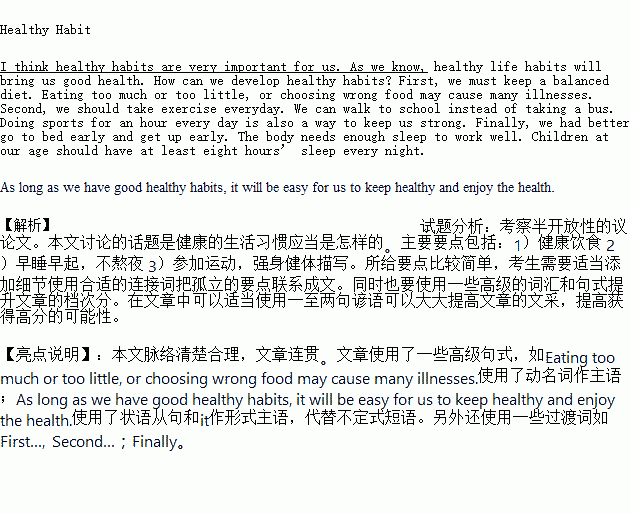题目内容
健康的生活习惯对于成长中的我们是非常重要的。你认为健康的生活习惯应当是怎样的呢?请根据下面信息提示,写一篇100词左右的短文。
1)健康饮食 2)早睡早起,不熬夜 3)参加运动,强身健体
Healthy Habit
I think healthy habits are very important for us. As we know,
_______________________________________________________________________________________________________________________________________________________________________________________________________________________________________________________________________________________________________
练习册系列答案
 全能练考卷系列答案
全能练考卷系列答案 一课一练课时达标系列答案
一课一练课时达标系列答案
相关题目


 B. took turns C. turned out D. looked up
B. took turns C. turned out D. looked up